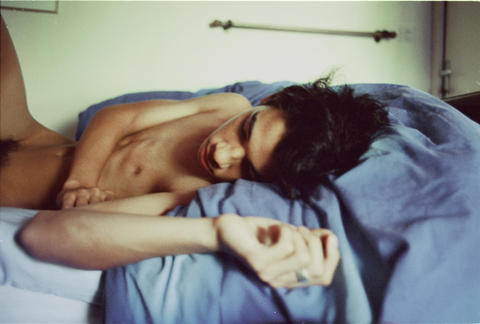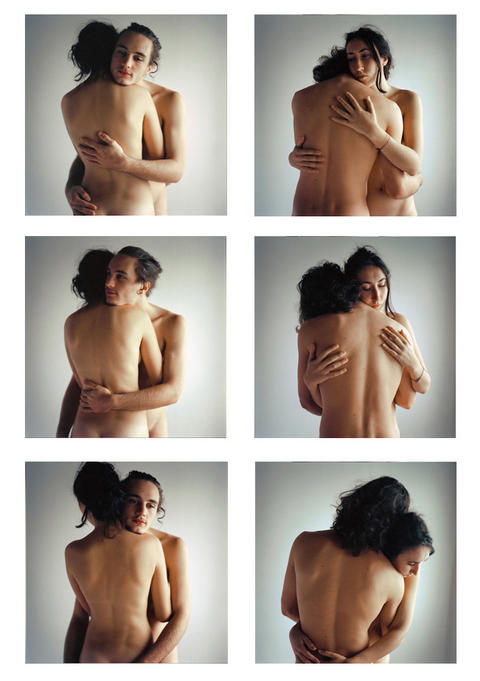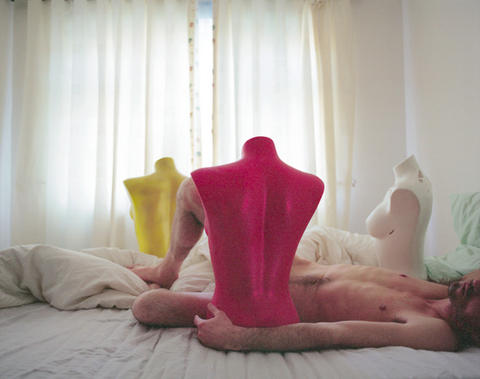Yann Faucher’s photo essay ‘Body’ is printed in Granta 110: Sex. He spoke to Emily Greenhouse about the delicate intimacy of his portraits, and the ‘wild and hippie summers’ of his childhood…

EG: How did you first come to photography?
YF: By mistake. After university I spent quite a lot of time looking for a job. One day I read an ad on the internet for modelling, I started working with a few photographers and then after three or four months I started making pictures myself.
Your work is very personal. Where did you grow up, and what images from childhood do you remember best?
I am from France, south west of Brittany, just by the sea. The images I remember best are from the summers spent with my cousins; they were wild and hippie summers. I remember wide fields, big trees, beaches of warm sands and images of the naked breasts of my older cousins. I was the youngest.
You have a PhD in physics – do you feel this specialized background in science informs your work?
I think my background in science has always helped me quite a bit, not for the technical issues but my photography has always been a sort of ‘laboratory’.

Whose work do you feel most inspires yours?
I don’t think there’s a category or person in particular that so far inspires me. I have never been a fan person in my life. But music, reading and so many little things give me inspiration.
Do you feel there’s anything particularly ‘French’ in your approach to photography, that sets you apart from your peers here in London?
I don’t think so – or, not on purpose. But French people are lucky to have a pretty old and well-structured language. I think your native language structures your mind. France and French culture would have been so different with another language, another set of words, intonations and phrases.
You have experience in fashion photography. Is photographing clothed bodies different from photographing naked ones?
I don’t see any differences, to be honest. Photography is all about a specific moment whether the bodies are covered or not. Both reveal unique details and aspects of our society.
Your photography shows a sensitive, intuitive but slightly shocking intimacy. How do you find your subjects, and what relationship do you maintain with them?
I don’t think my photography is shocking at all but it definitely has to do with sensitivity and most of the time intuition. I find my subjects on my path, it’s all pretty random. Some of them are friends.
What do you think your photographs communicate about intimacy, and intimacy in contemporary society?
My photographs communicate a sort of simplicity within their casual intimacy, but show people isolated and sheltered. My photographs show we all have to live our lives by ourselves. That’s how society raises us now, with more and more individualism each step of the way.

Do you think your relationship with your body changes through self-portrait?
I use my body as a material, in an attempt to make it impersonal for the viewer. It’s easy to be your own subject/model, but my primary aim is not narcissism. It’s definitely a self-dialogue; in each of my pictures the only person I want to reach is me, whether I am the subject or not. My subjects are somehow a part of me, and are showing something from or about me. You could say they are my lovers. I use my memory, my instinctive feelings when I am taking a picture.
You describe yourself as a ‘listener, a reader, a watcher, a creative story-maker’. Other than the visual, which of your senses is most important to you?
Memory is not a sense, but it should be.
If you could photograph anything or anyone, what would it be?
Céline Dion.
Photographs © Yann Faucher







